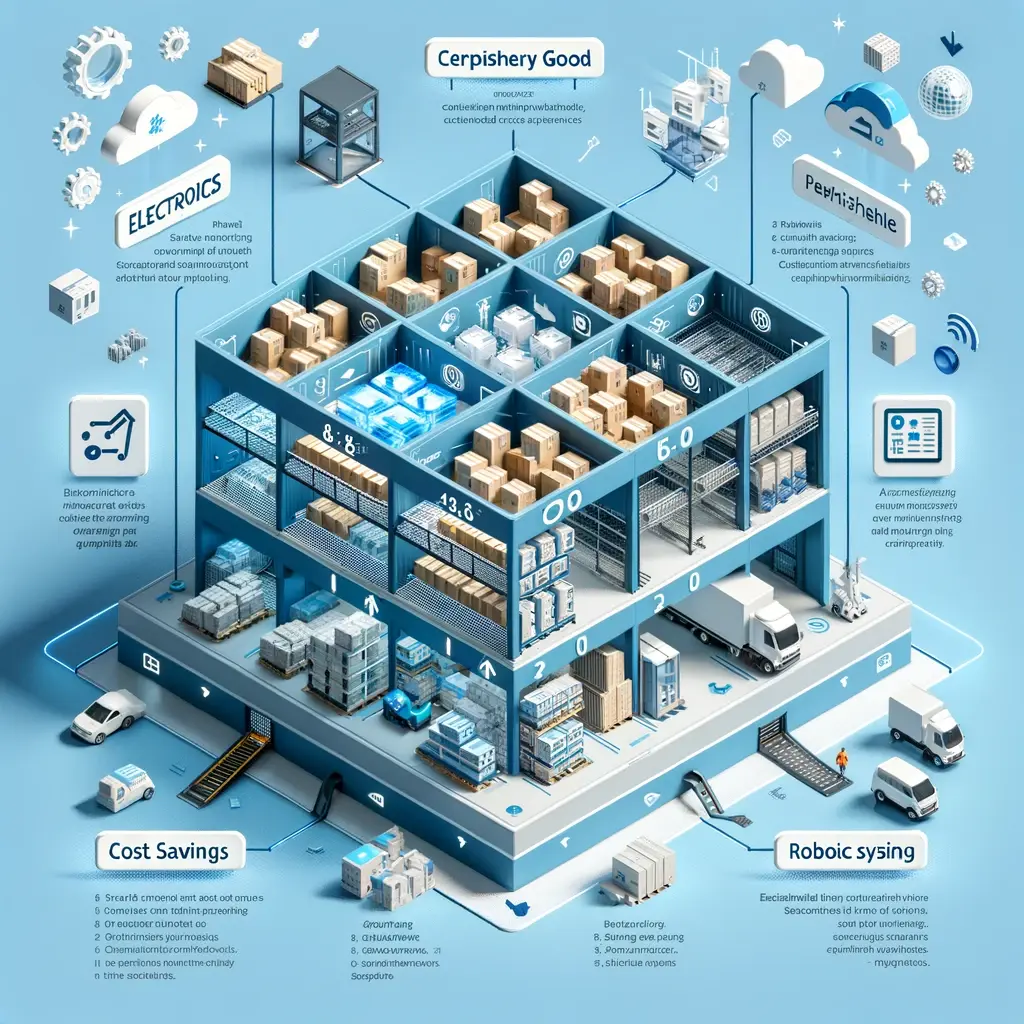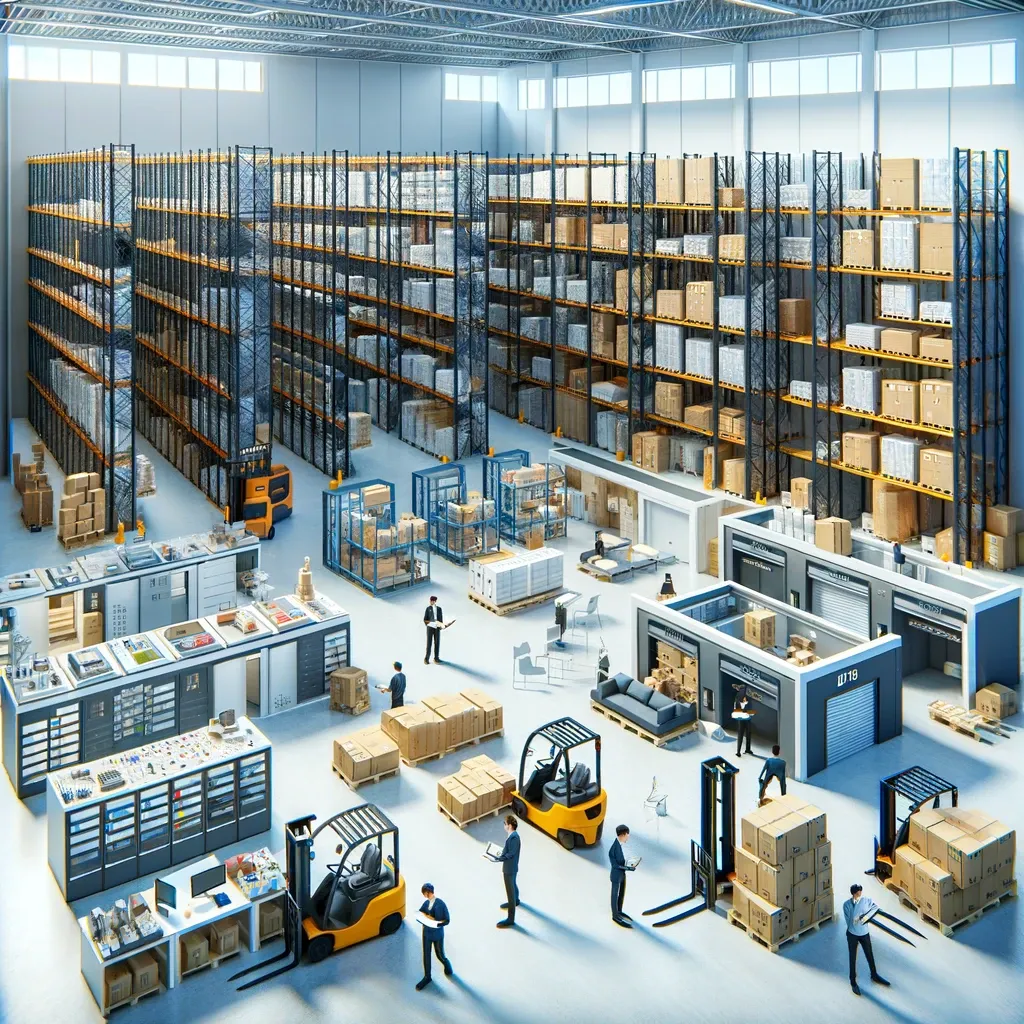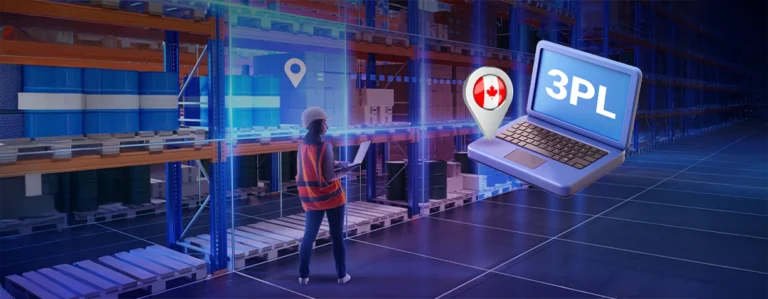In the contemporary business landscape, the concept of customized warehousing services has become increasingly significant, especially in the bustling markets of Canada, with a notable emphasis on Vancouver. These services are not just a trend but a response to the diverse and evolving storage needs of various industries. They represent a shift from traditional warehousing methods, offering solutions that are specifically tailored to individual business requirements. This adaptability makes them particularly relevant in today’s fast-paced, demand-driven market environments.
The Canadian market, known for its diverse economic activities ranging from manufacturing to e-commerce, has seen a growing need for such personalized warehousing solutions. This is particularly evident in Vancouver, a hub for both domestic and international trade. Customized warehousing services in this region are not just about storing goods; they’re about providing comprehensive, flexible solutions that align with the unique operational rhythms and requirements of each business, ensuring efficiency and cost-effectiveness.
Table of Contents
What are Customized Warehousing Services?
Customized warehousing services are an innovative approach to storage and logistics, designed to cater specifically to the unique demands of each client. Unlike traditional warehousing, which offers a more generic service, these tailored solutions encompass a variety of features such as specialized storage conditions, flexible space utilization, and advanced inventory management systems. This customization allows businesses to optimize their warehousing according to their specific products, supply chain requirements, and operational strategies.

These services are characterized by their versatility and ability to adapt to various scenarios, whether it’s handling perishable goods with specific temperature requirements or providing enhanced security for high-value items. The essence of customized warehousing lies in its client-centric approach, where services are not just provided but meticulously crafted to align with the intricate details of each business’s logistics needs. This level of personalization is what sets it apart from standard warehousing options and is a key factor in its growing popularity among diverse industries.
Benefits of Customized Warehousing Services
The advantages of customized warehousing services are manifold, particularly in terms of flexibility and efficiency. These services allow businesses to adapt their storage solutions in real time, responding swiftly to market changes, seasonal fluctuations, or evolving business models. This agility ensures that warehousing is not just a static component of the supply chain but an active, responsive element that contributes to overall business efficiency.
Efficiency is another significant benefit. Customized warehousing can lead to more streamlined operations, reducing waste and lowering costs. By tailoring storage solutions to the exact needs of a business, these services minimize the risks of overstocking or underutilization of space. Moreover, they often incorporate advanced technologies such as automated inventory management and data analytics, providing businesses with valuable insights for better decision-making.

Furthermore, customized warehousing services enhance the overall customer experience. By ensuring that products are stored, handled, and transported under optimal conditions, businesses can maintain product quality, improve delivery times, and meet customer expectations more consistently. This aspect is particularly crucial in today’s market, where customer satisfaction is directly linked to logistical efficiency and reliability.
Tailored Warehousing Solutions in Vancouver
Vancouver’s unique position as a trade gateway in Canada makes it an ideal location for innovative warehousing solutions. The city’s diverse economy, encompassing everything from technology to natural resources, demands a warehousing approach that is as varied as the businesses it serves. Customized warehousing in Vancouver offers solutions that are not just about space but about integrating services such as just-in-time delivery, cross-docking, and specialized handling, catering to the specific needs of Vancouver’s vibrant business community.

Moreover, Vancouver’s status as a major port city adds another layer of complexity and opportunity to warehousing services. Customized warehousing providers in this region have developed expertise in handling international shipments, incorporating customs and compliance services, and offering value-added services like packaging and assembly. This holistic approach ensures that businesses can manage their entire supply chain efficiently, from global sourcing to local distribution, all within the framework of tailored warehousing solutions.
Unique Storage Solutions for Different Industries
The versatility of customized warehousing services shines when looking at how they cater to different industries. In the retail sector, for example, warehousing services can provide seasonal storage solutions, handle high volumes during peak shopping periods, and offer efficient distribution to various retail outlets. For the manufacturing industry, warehousing solutions might focus on raw material storage, just-in-time delivery to production lines, and the handling of finished goods.
Each industry comes with its unique set of challenges and requirements. For instance, the pharmaceutical industry needs warehouses with controlled environments to store sensitive products, while the electronics industry requires secure, dust-free storage with anti-static flooring. Customized warehousing providers understand these nuances and offer specialized solutions that ensure the integrity and safety of products, regardless of the industry.
Technological Integration in Customized Warehousing
Technology is a cornerstone in the evolution of customized warehousing services. Modern warehouses are equipped with state-of-the-art technology such as Warehouse Management Systems (WMS), Radio Frequency Identification (RFID) tagging, and automation robotics. These technologies streamline operations, enhance accuracy in inventory management, and improve overall efficiency.
The integration of Artificial Intelligence (AI) and Machine Learning (ML) in warehousing operations is particularly transformative. These technologies enable predictive analytics for inventory management, optimize warehouse layouts for faster processing times, and even assist in forecasting demand to better align warehousing resources. The future of customized warehousing lies in this continuous integration of advanced technologies, ensuring that these services remain at the forefront of efficiency and innovation.
Cost Considerations in Customized Warehousing
Understanding the cost implications of customized warehousing is crucial for businesses. While it’s true that these services might come with a higher upfront cost compared to standard warehousing, the long-term benefits often outweigh the initial investment. Customized solutions can lead to significant savings by optimizing space utilization, reducing handling times, and minimizing transportation costs.
Moreover, the cost structure of customized warehousing services is often flexible and scalable, allowing businesses to pay for only the services they need. This model can be particularly advantageous for businesses with fluctuating storage needs. Providers also often offer various pricing models, including fixed-cost, pay-per-use, or value-based pricing, giving businesses the flexibility to choose a model that best suits their financial strategies.
Challenges and Solutions in Customized Warehousing
Despite the numerous advantages, customized warehousing services face their own set of challenges. One significant challenge is the need for constant adaptation and scalability to keep up with changing business needs and market trends. Providers must be agile and innovative in their approach to offer relevant solutions continuously.
Another challenge lies in the integration of technology. While technology is a key enabler, it also requires substantial investment and expertise. Warehousing providers must balance the need for cutting-edge technology with practical, cost-effective solutions. Additionally, the human element cannot be overlooked. Skilled personnel are essential for the effective management of these sophisticated warehousing operations.
To overcome these challenges, warehousing providers are increasingly focusing on partnerships and collaborations, both with technology providers and their clients, to develop solutions that are mutually beneficial and sustainable in the long term. Continuous training and development of staff also play a critical role in ensuring that the human aspect of warehousing keeps pace with technological advancements.
Sustainability in Customized Warehousing
Sustainability has become a crucial factor in the warehousing industry, and customized warehousing services are no exception. These services are increasingly incorporating green practices such as energy-efficient lighting and heating systems, solar panels, and sustainable building materials. The goal is to reduce the environmental footprint of warehousing operations while also offering clients the benefit of associating with environmentally responsible practices.
Moreover, sustainable warehousing extends beyond the physical infrastructure. It involves optimizing logistics processes to reduce waste, improve recycling efforts, and lower carbon emissions. For instance, efficient inventory management can minimize overstocking and waste, while optimized transportation routes can reduce fuel consumption. These sustainable practices not only contribute to environmental protection but also resonate with consumers who are increasingly favouring eco-friendly businesses.
Choosing the Right Customized Warehousing Provider
Selecting the right customized warehousing provider is a critical decision for businesses. Factors to consider include the provider’s experience and expertise in the industry, technological capabilities, and the ability to scale services according to business needs. It’s also important to evaluate their track record in terms of reliability, customer service, and flexibility to adapt to changing requirements.
In addition, businesses should assess the financial health and stability of the warehousing provider. This ensures that the provider is capable of sustaining long-term partnerships and investments in technology and infrastructure. Checking references and reviews from other clients can also provide valuable insights into the provider’s performance and service quality.
Legal and Regulatory Aspects
Navigating the legal and regulatory landscape is another critical aspect of customized warehousing. Compliance with local, national, and international regulations is essential to avoid legal complications and ensure smooth operations. This includes adherence to safety standards, customs regulations, environmental laws, and any other relevant legislation.
Warehousing providers must be well-versed in these regulatory requirements and should have systems in place to ensure ongoing compliance. For businesses, understanding these legal aspects and partnering with a warehousing provider that prioritizes legal compliance is essential for risk mitigation and ensuring seamless operations.
Case Study: Success Story in Canada
A practical example can illustrate the effectiveness of customized warehousing services. Consider a Canadian e-commerce company that partnered with a warehousing provider in Vancouver to handle its logistics. The provider offered a solution that included automated order processing, real-time inventory tracking, and efficient distribution networks. This partnership resulted in a significant reduction in order processing times, improved accuracy, and higher customer satisfaction levels.
This success story demonstrates the tangible benefits of customized warehousing, showcasing how tailored solutions can lead to operational efficiency, cost savings, and improved customer service.
Future of Customized Warehousing in Canada
The future of customized warehousing in Canada looks promising, driven by technological advancements, growing demand for personalized services, and an increasing focus on sustainability. Emerging trends include the integration of advanced AI and ML for predictive analytics, the use of drones and autonomous vehicles for inventory management and transportation, and the adoption of green technologies.
These developments indicate that customized warehousing services will continue to evolve, offering even more sophisticated and efficient solutions. This evolution is not only beneficial for businesses in terms of operational efficiency and cost savings but also contributes to the broader goals of environmental sustainability and innovation in the logistics sector.
Expert Opinions and Industry Insights
Industry experts are optimistic about the growth and innovation in the field of customized warehousing. They highlight the importance of continuous adaptation to market trends, investment in technology, and the need for sustainable practices. Experts also emphasize the value of customer-centric approaches, where services are designed around the specific needs and expectations of businesses.
Recent industry insights suggest a growing trend toward automation and digitalization in warehousing. These technologies are not just about efficiency; they also provide data and insights that can drive strategic business decisions. The future of warehousing is therefore not just about storing goods but about adding value to the entire supply chain.
Conclusion
Customized warehousing services offer a flexible, efficient, and innovative solution to meet the diverse storage and logistics needs of businesses. With their focus on personalization, technology, and sustainability, these services are setting new standards in the warehousing industry. As businesses continue to evolve and market demands change, customized warehousing will play a pivotal role in enabling businesses to adapt and thrive in the dynamic global marketplace.
In summary, whether it’s through tailored solutions in bustling cities like Vancouver, the integration of cutting-edge technology, or the adoption of sustainable practices, customized warehousing services are reshaping the way businesses approach their logistics and storage needs, positioning themselves as a key player in the future of the logistics and supply chain industry.
FAQs [ Customized Warehousing Solutions ]
1. How do customized warehousing services adapt to different industry needs?
Customized warehousing services are designed to cater to the specific requirements of different industries by offering specialized storage conditions, handling procedures, and logistical solutions tailored to each sector’s unique needs.
2. What role does technology play in customized warehousing?
Technology is integral to customized warehousing, enhancing efficiency through advanced systems like WMS, RFID tagging, and automation. It also enables predictive analytics and data-driven decision-making, contributing to more effective and responsive warehousing solutions.
3. What makes customized warehousing services different from traditional warehousing?
Customized warehousing services offer more flexibility and are tailored to meet the specific needs of individual businesses, unlike traditional warehousing which follows a one-size-fits-all approach.
4. How can customized warehousing services improve efficiency?
By tailoring solutions to specific business needs, customized warehousing can streamline operations, reduce waste, and improve overall logistics efficiency.
5. Are customized warehousing services more expensive than standard warehousing?
While they may have a higher upfront cost, the long-term savings and efficiency gains can make customized warehousing services more cost-effective.
6. How do sustainability practices integrate into customized warehousing?
Customized warehousing often incorporates sustainable practices like energy-efficient operations and waste reduction, contributing to a greener supply chain.
7. What should businesses consider when choosing a customized warehousing provider in Canada?
Key considerations include the provider’s experience, technological capabilities, compliance with regulations, and ability to meet specific business needs.





